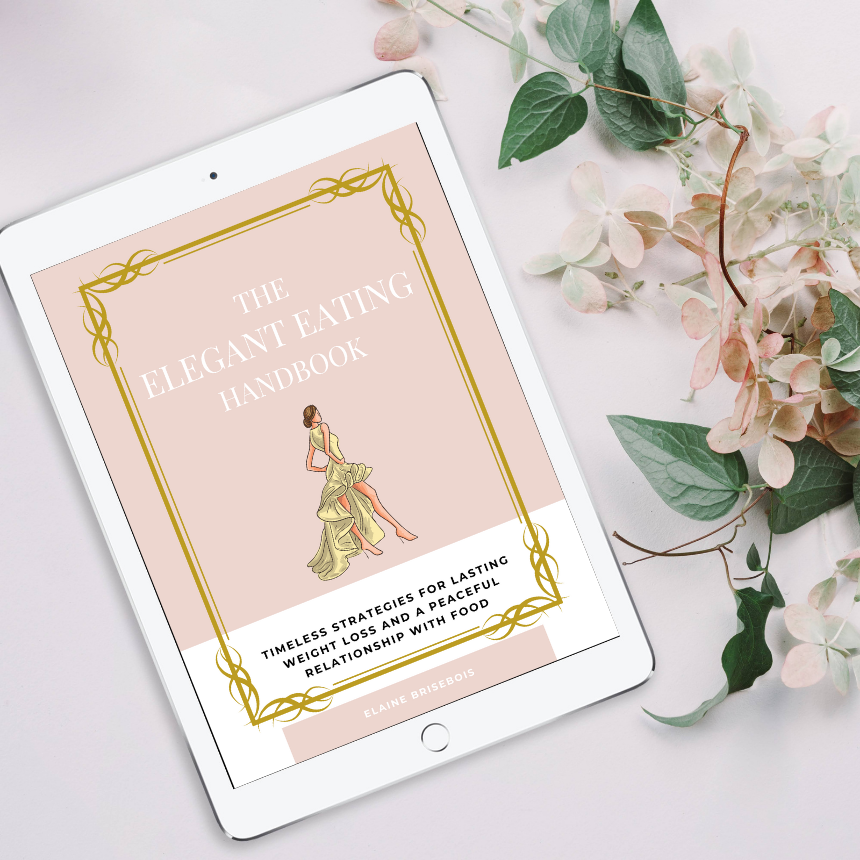If your goal is to lose weight or get healthier, it’s important to have an eating strategy that works for you.
It’s not uncommon to observe people jumping from one diet to the next without taking any personal responsibility for their results.
If they didn’t get the results they wanted, then it must have been the “diet” that didn’t work.
As if the “diet” holds ALL the power.
This is why I help my clients build a protocol that works for them, where they get to take personal responsibility for what they will eat—much more empowering.
(By the way, a “Protocol” is just another term for “Food Plan” that I use with clients, and it often includes other supportive eating parameters beyond the food itself).
The important thing to note here: is my clients fully participate in creating their protocol.
I offer plenty of nutritional recommendations, support, and guidance along the way, but ultimately they are choosing what they’re willing to commit to in both the short-term and long-term.
If I were to simply hand her a meal plan to follow, it would just be another diet to “rebel” against—another diet “that didn’t work.”
The 3 components
When it comes to long-term results, there are *3 components* any successful “Food Plan,” “Protocol,” or “Diet” must control for, and they are:
1) Quality
This is defined by the nutrient density of the foods we eat and will determine our health.
So, for example, by consuming a diverse diet rich in micronutrients (vitamins and minerals) and other health-protective compounds like phytonutrients (found in plants), fiber, and water, you’ll not only feel better physically, but your body will function better overall.
A quality diet contributes to all aspects of health—metabolic, digestive, reproductive, psychological, etc.—and keeps us feeling our best and incentivized to eat well over the long run.
In other words, once you experience how good you feel eating a quality diet, it’s hard to go back to feeling terrible at worst or mediocre at best.
2) Quantity
This is defined by the amount we consume and determines our weight and body composition.
(Of course, other things also influence these, i.e. your energy output, lean mass, etc.)
I’m sure it doesn’t come as a surprise that it’s entirely possible to overeat healthy foods.
In other words, just eating “healthy” doesn’t necessarily equate to weight loss or maintaining our desired body weight.
To break this down a little further:
The overall quantity of food or total energy (calories) consumed will determine our weight.
The overall quantity or ratio of macronutrients (protein, carbs, fats) will determine our body composition. For example, consuming a diet with a moderate-to-high amount of protein will support muscle growth and preserve lean mass, contributing to a “leaner” looking physique overall, compared to eating a low-protein diet, even when total calories are kept consistent (your fitness will of course factor in here as well).
This doesn’t mean that you have to track calories per se, but you will still need to be mindful of portion sizes and the overall quantity of food you consume.
And as an aside, even if weight loss or body composition changes aren’t your main goal, regularly consuming beyond our needs isn’t healthy and can contribute to other metabolic and digestive problems.
3) Sustainability
This is defined as a way of eating you can stick with over the long run.
In other words, is it enjoyable?
Can you fit in your favorite foods?
Does it allow for flexibility?
Does it work with your work, home, family, and social life?
Having a way of eating that you are happy to follow over the long run is critical to success.
It doesn’t mean that you won’t have to make some sacrifices or that the path to your goal will be easy-breezy, but when you know you don’t have to miss out on your life and can still enjoy many of the foods you love, and that success is inevitable as long as you keep showing up and don’t quit on yourself, you’re more willing to accept, and even welcome, some short-term discomfort as par for the course.
Putting it all together
To get permanent results, you must account for ALL 3 components.
You must be able to eat in a way that balances out quantity and quality and is sustainable long-term.
There are many people who focus solely on number 1 (Quality)—they eat a healthy diet but aren’t necessarily controlling for number 2 (Quantity)…and so they wonder why they’re not getting the results they desire despite eating a “healthy diet.”
Then some people focus solely on number 2 (Quantity), but without a certain degree of number 1 (Quality), they don’t feel satisfied after their meals, they’re hungry all of the time, their energy is low, and they generally feel unwell…and so their results are short-lived.
Then some people are good at balancing both numbers 1 (Quality) and 2 (Quantity) but at the sacrifice of number 3 (Sustainability).
These are the people who do well as long as their environment is controlled, but as soon as they have a social event, vacation, or dinner out with family and friends, numbers 1 (Quality) & 2 (Quantity) go out the window and they have a challenging time “getting back on track.”
Often, these are the same people who are either “eating on plan” or “off plan,” “on their diet” or “off their diet,” swinging from one extreme to the other…and so their results can’t be sustained.
Analyze and Evaluate
This is why collecting “data” is essential so you can analyze and evaluate your results.
Because at the end of the day, your results are your results.
It’s one thing to talk about putting something into action and another to show up for yourself and do an action consistently.
Once you know what’s working and what’s not, you can tweak and refine as needed.
And once you have a plan that works for you, then you can focus your attention on the deeper work: building the skill of following through on your plan and using food in its appropriate context—not as a means to soothe, reward, or distract.
~Elaine
If you’re tired of spinning your wheels with your eating and weight and ready for a permanent solution, my signature 1:1 program might be a great fit.
This is for you if you desire personalized, high-level support in reaching your weight and body goals and overcoming your struggles with food.

Hi! I’m Elaine, a Certified Nutritionist and Master Certified Health Coach. I support women in achieving their health and body goals while prioritizing a peaceful and balanced relationship with food.

Get a free copy of my handbook!
The Elegant Eating Handbook: Timeless Strategies for Lasting Weight Loss and a Peaceful Relationship with Food.
share with friends
keep reading...




